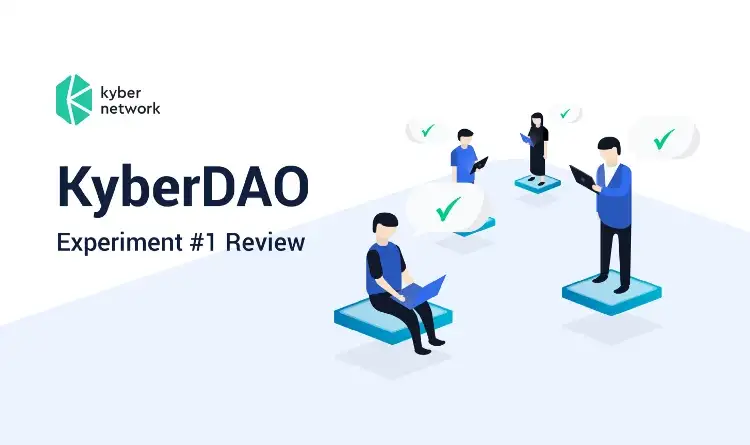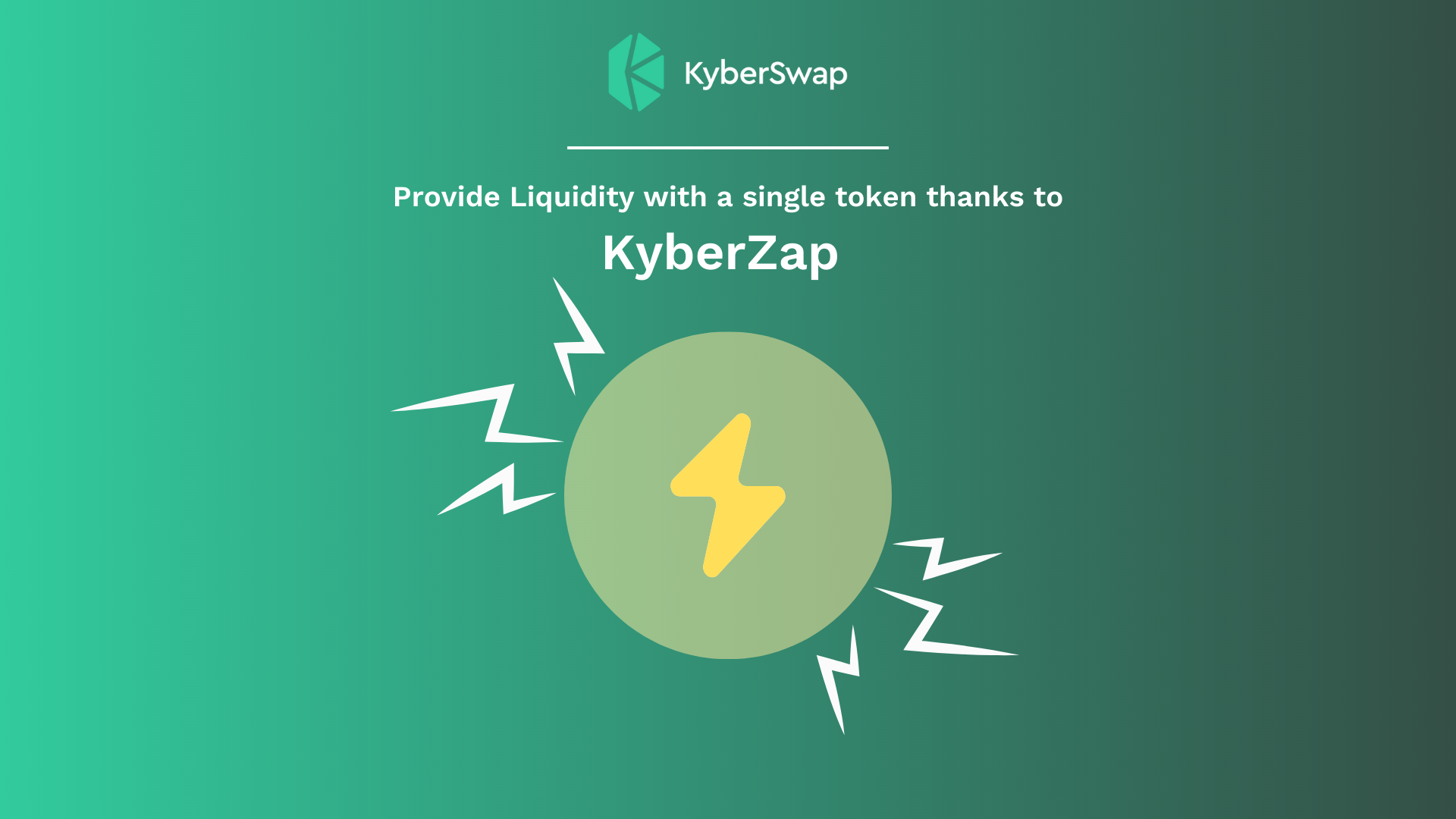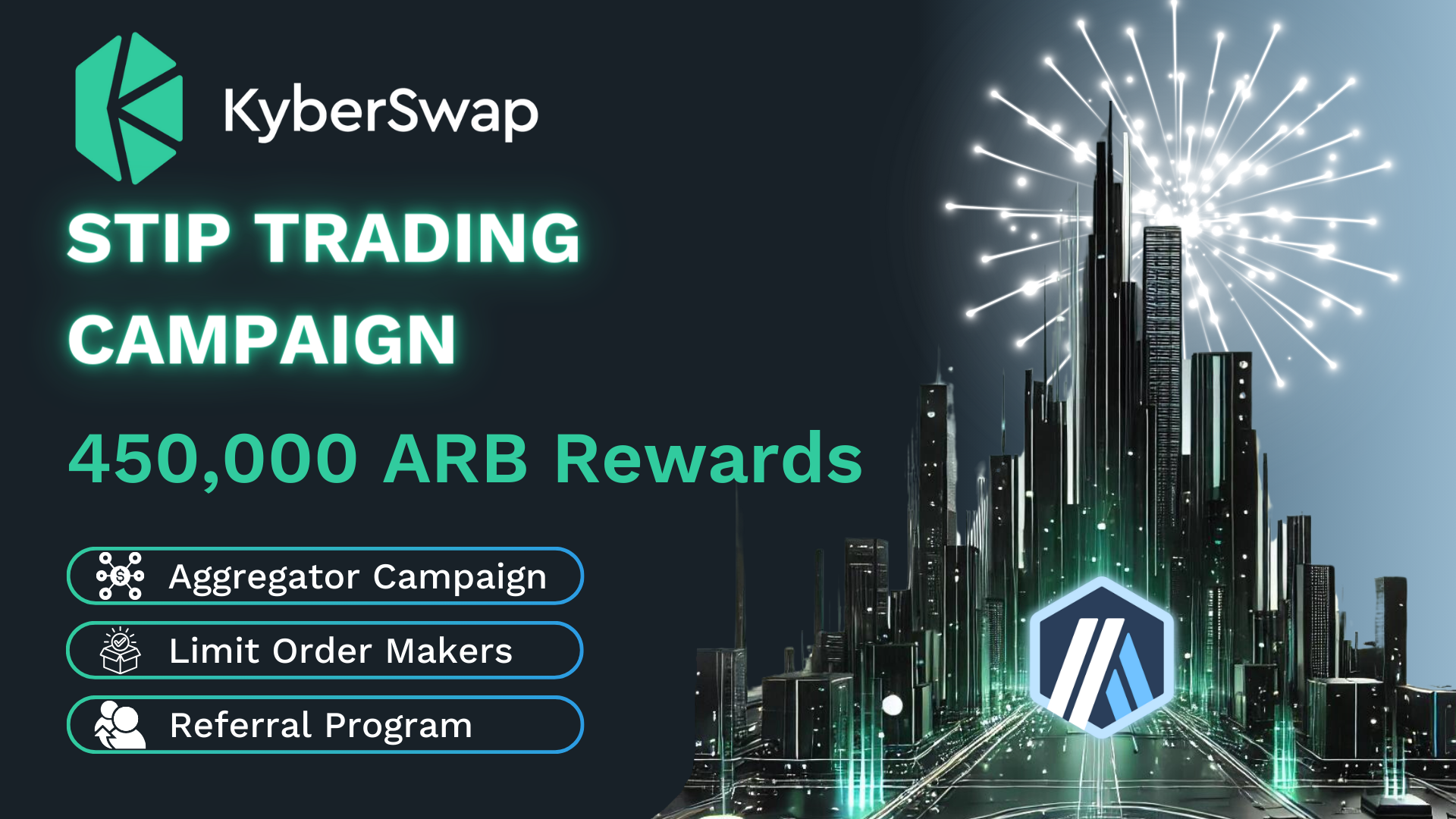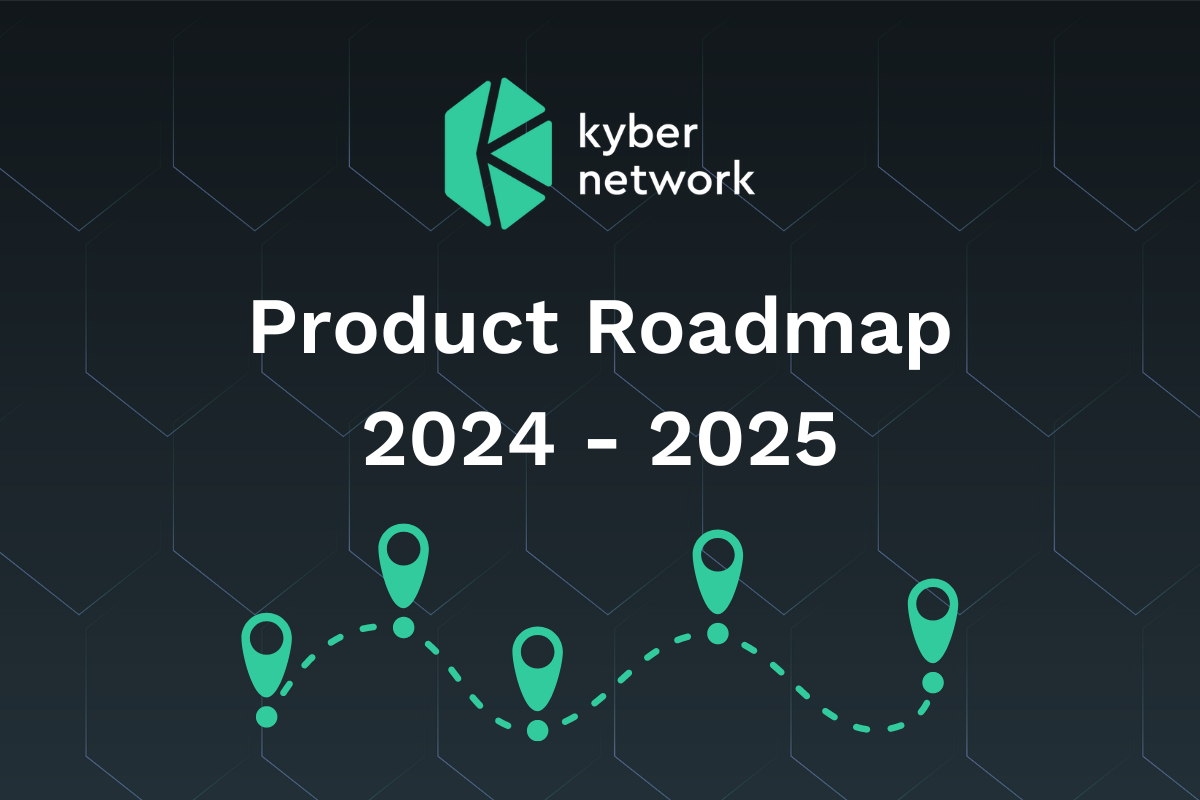On 8th March, we held the first of a series of DAO (Decentralized Autonomous Organization) experiments that will help us develop our own KyberDAO for collective decisions by the community. You can read about our objectives for the DAO Experiments in our previous blog post.
To facilitate discussions, we created a DAO discussion Telegram group and invited community members and key opinion leaders from the ecosystem to share their perspectives about Kyber’s approach to DAOs and decentralized governance. We are glad to see that our discussion group has since grown to over 100 members, with many of you contributing valuable insights that all of us can learn from.
We’d like to thank each and every one of you who participated in KyberDAO’s Voting Experiment #1 ! We truly appreciate your participation, whether you voted in the poll, gave feedback about the KyberDAO, or contributed in your own special way. Special mention goes to Aleksey from Bloxy.info for creating a dashboard for us to track the number of voters for the first poll, and Edward Moncada for sharing his experiences with DASH and Blockfolio. We are very grateful for such community contributions.
In this review, we will share with you the poll results from Experiment #1, and attempt to summarize what went well, what could be improved, and other key findings from the experiment and the discussion group.
Experiment #1 Summary
Poll Results
For our first experiment, we ran a basic one-question poll:
Should Kyber set up a Community Grant (in KNC), to be governed by the KyberDAO? Yes / No
The poll lasted for 16 days, and Aragon’s current platform was used for voting.
- We had a turnout of 60 voters (unique addresses). You can view more granular data about KNC holders on Ethplorer.
- More than 1 million KNC tokens were used as votes.
- 0.56% of total KNC voted ‘Yes’
- Tokens that voted ‘Yes’: 1,197,737 KNC
- Tokens that voted ‘No’: 60,966 KNC
- 95% of voting power voted ‘Yes’, in favour of a community grant to be set up, to be governed by the KyberDAO to fund new product or improvement proposals

Quick Analysis
The turnout of 60 voters is reflective of the current state of the crypto space. There is clearly some resistance towards DApp usage and community voting initiatives in general. This was despite the voting process being very straightforward and smooth, with no major issues reported.
Low voter turnout is a challenge shared by many other projects in the crypto space, and no one has all the answers. Therefore, we would like to work together as a community to discuss how we can develop the KyberDAO and increase voter participation. Overall, we are happy with the response and activity level for Experiment #1, and we’d continue to work hard to educate the community about decentralized governance. The results of this poll will also be used as a reference to help us better structure future experiments.
5 KyberDAO Discussion Topics
Based on the poll and feedback from the discussion group and other community channels, we have identified 5 key topics. We will cover them briefly here, and will delve into them in greater detail through focused discussions on Telegram.
1. How much control should the DAO have?
A key topic to address in the development of the KyberDAO is how decentralized our DAO governance should be. This would pertain to all aspects of collective decision-making for Kyber. Are decisions made by the DAO final and binding? Can proposals be vetoed by the Kyber team? Some members have proposed that the KyberDAO should be fully decentralized over time. Conversely, some have also expressed confidence in the Kyber team and felt that during this phase at least, it might be more efficient to allow the team to continue executing their current strategy on their own.
2. Voting Platform, System and Incentives
a) Voting Platform
Voting on the Aragon platform in the first experiment was very straightforward. The UI was easy to navigate and most users were able to execute the vote in a few clicks. The Aragon platform UI currently does not show the real-time poll results unless you click ‘View Vote’, and does not alert you when you do not have KNC in your wallet address. There are also some limitations in poll design, such as not allowing for Multiple-choice Questions. We will be closely watching the upcoming Aragon updates to explore how we can use their new features. Thank you John Light and Maria for sharing your thoughts and providing us with useful links.
Double-voting (voting with one address containing KNC, before transferring the KNC to another address to vote again) was possible in Experiment #1, due to the way we had designed the poll to keep things simple and convenient. This issue will be mitigated in future polls.
Overall, feedback suggests that voters want a straightforward voting process, hence the voting infrastructure needs to have as little friction as possible.
b) Voting System and Voting Power
More discussion is needed on whether we should avoid a governance system where one’s voting power was determined only by the number of KNC held in the address. Should we prevent the allocation of voting power to “passive” users that hold large amounts of KNC, but have no intention to participate in the poll, and do not actively contribute to the Kyber ecosystem? For example, exchange wallets and KNC token speculators could fall under this category.
In addition, members such as DidYouSayBitcoin and M L raised concerns about how voting power distribution affects voter psychology. For example, a voter with a small amount of KNC might feel that they have minimal influence since the Kyber team holds a lot of KNC. This results in a lack of motivation to participate.
Various voting systems were proposed, including Quadratic voting, Carbon voting, and a Futarchy-based system. Reputation-based systems also seem to be a popular choice, where addresses are awarded reputation points/tokens based on a range of criteria, such as holding KNC for a period of time, participating in polls, trading through Kyber, submitting proposals for voting etc. Voting power could then equate to the total points from these criteria. An example of a Reputation-based system we can learn from is the dxDAO, an initiative by Gnosis (thank you Chris and Anna for explaining!)
The concept of delegated voting power, also known as liquid democracy, was also preferred by some community members like Thi Tra Da. In such systems, voters can assign representatives or ‘delegates’ that they trust to vote on their behalf. We will discuss and consider exploring these various systems in future.
c) Understanding Voter Motivations
As an ecosystem, we face the challenge of low voter participation, even for major decisions such as increasing Maker’s stability fee. The turnout of 60 voters in our Experiment #1 could be attributed to a variety of reasons such as lack of education, or members feeling that there’s a lack of agency in their votes. Perhaps the question in our first poll was also not interesting enough to warrant voter attention.
When it comes to increasing participation, installing proper incentive mechanisms was often mentioned as an important factor. Incentives can come in the form of monetary incentives, or the motivation to propose and execute a proposal.
In addition, the different target audiences in the DAO have to be considered. As Aleksey highlighted, some developers are interested in proposals that affect how DApps are built with Kyber’s protocol, but they may not be interested in proposals that revolve around trading.
Pat from DAOStack also shared his opinions to community member HilmarX about low voter participation and voter psychology. From his perspective, low voter turnout should not always be perceived as a problem. A bigger voter pool is perhaps needed only for controversial proposals, where the outcome is ambiguous.
As a community, we have to discuss and understand what kind of proposals members will be interested in, the reason why they would vote, and how voting will benefit them. Greater incentives might be needed to increase voter participation. The community might also be more willing to vote when they have the ability to impact or participate in a meaningful initiative that they really care about.
3. Areas of Governance and Enforcement
We have to eventually determine the key areas of governance for the KyberDAO. Do we allow the community to propose ideas? If so, what kind of proposals are allowed, and how can we enforce it? Who would be responsible for execution — the Kyber team or the community members that proposed the idea? How much budget should be allocated?
Edward, based on his experiences with DASH and Blockfolio, has suggested in various discussions that projects should start with a simple DAO pilot that governs a micro-grants process, in a low-risk environment. This will help the community slowly understand the DAO process, while the team identifies the areas that the community is passionate about.
4. Source of DAO Funding
Based on the first poll and group discussions, majority of our community are in favour of a grant/treasury. Initially, these grants will be bootstrapped with Kyber’s own funds. However, to have a sustainable DAO system in the long run, there needs to be a decision made about where the funds will come from.
One idea proposed by community member DidYouSayBitcoin was to have a percentage of the KNC fees slated for burning to be allocated to the treasury. Another idea proposed was to raise new funds directly from the community.
5. Transparency, Accountability, Community-Led
It is vital that there are adequate checks and balances. Community members such as a-gaus have commented that transparency is a critical pillar of decentralization. Proposals have to be responsibly curated, curators need to be fairly elected, and we have to ensure that votes are not gameable. Thus, the values of transparency, accountability, and being community-driven are very important, and we believe that these values are what binds a strong community, and what a DAO (no matter the governance model) should try to embody even at this nascent stage of development.
The above 5 topics will be covered in greater detail over time, as we conduct and iterate through more DAO experiments. We are optimistic that with more research on voting platforms, greater community education, and increased visibility of the KyberDAO, we will see more meaningful community participation.
Next Steps
Preparing for KyberDAO Voting Experiment #2
With the first KyberDAO voting experiment completed, we are now preparing for Experiment #2 which will be run on DAOStack. It is tentatively scheduled for end-May.
In designing our second experiment, we were greatly inspired by the conversations and the valuable insights gleaned from our telegram group. Together with our community, we will focus on solving the immediate challenges, such as increasing voter participation. We hope to increase voter turnout from 60 to at least 100 in the next poll. As we await existing DAO platforms to release new upgrades and functionalities, we will also gradually test new voting elements to see if they will add value to the KyberDAO.
A blog post will be shared soon with more details on how to participate in Experiment #2 using the DAOStack Alchemy platform.
Educating the Community, Together
The concept of DAOs and decentralized governance is a complex topic. As mentioned by community member Chomsky, a tremendous amount of time and effort is required to educate the community, before we can expect them to meaningfully participate in collective decision-making.
The natural tendency is to move fast in crypto, due to the exciting progress we’ve seen in the technology. However, decentralized governance and DAO development isn’t just some product to be shipped. Human communities grow and evolve and they take time to learn and get accustomed to new systems.
At Kyber, we want to make sure that we clearly communicate the importance of our KyberDAO right from the start. We aim to experiment and learn together with our community, and iterate as we go along. We will also continue to conduct research and source inspiration from projects in the space such as Aragon, DAOStack, Gnosis, Maker, DigixDAO, Decred, Dash, MolochDAO, Polkadot, and others as we make progress on our own DAO development. Here is a succinct summary by Vu from Digix about the current state of DAOs today.
Once again, a huge THANK YOU to 旭东 黄, a-gaus, Anna, Alexisb, Aleksey, Anton, Alex G, Bethany, Bobby Lee, Calvin, Chomsky, Chris, DidYouSayBitcoin, Edward, Grant Scott, Geoffrey, HilmarX, HelpfulBrother, James, Jocelyn, John Light, Kerman, Kyle, LoveSunnyDays, Lukas, Matan Field, Maria, Marc Zeller, M L, MyHolding, Pat, Roberto, Rohan, Sergej, Steven, Tra Da, Vu, and many others for your contributions to our discussion.
We encourage everyone to join our social channels to learn more and share your views about DAOs. A successful DAO requires a strong, passionate, and knowledgeable community, and we are glad that we have a good foundation of members, ecosystem partners, and stakeholders that have taken the first step with us in this journey to develop the KyberDAO.
Voter Participation Rewards
As a reward for their participation, 10 voter addresses have been randomly selected to receive 10 Promo Tokens (PT) that can be used on KyberSwap.com We will send the tokens to these addresses soon.
- 0xf44b52c11b1c800722e8fdf4aa7f3076339e73c4
- 0x6a2df4318de4018b18186b225f7c304c0800f723
- 0x596b9a02345930ae5372d3a8a89774870d299fda
- 0x0c7800054e62d473b3bf7ed185be55ebd87b3d24
- 0xe8b4b3e5b50bdfaa6bc6d0cb7ae7936538f41295
- 0x10534d4e612071e6b6480c498dd8bdb8f51b9ed7
- 0x5d1cc0299de069514d2affb27d7035aa68e2d514
- 0xd3c97d1a4ba3bb1fc6438e237fabf2faac247552




